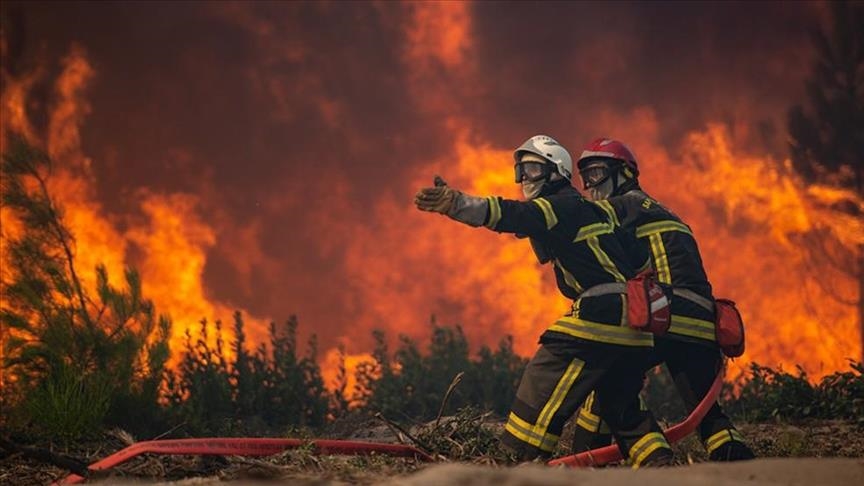A leading analyst of climate impacts has warned that heat inequality is causing thousands of unreported deaths in poor countries and communities across the world, following global temperature records that may not have been seen in 120,000 years.
In an appeal for the media and authorities to pay more attention to the dangers, Friederike Otto, co-founder of World Weather Attribution, said that sweltering conditions act as a stealthy killer that preys on the most economically fragile.
“Heatwaves are the deadliest type of extreme weather but they don’t leave a trail of destruction or striking images of devastation. They kill poor, lonely people in rich countries, and poor people working outdoors in developing countries,” said Otto, who is also a senior lecturer in climate science at the Grantham Institute of Imperial College London. “In the last 13 months, there will be thousands and thousands of stories of poor people dying in heat that will never be told.”
Read also: Labor injects $160m into Westpac fund offering for household energy upgrades
The advice comes amid growing concern about the hidden toll of heat inequality. Last month, the UN secretary general announced a call to action on extreme heat, with a focus on care for the vulnerable and protection of exposed workers.
“Extreme heat is increasingly tearing through economies, widening inequalities, undermining the sustainable development goals and killing people. It is estimated to kill almost half a million people a year; that’s about 30 times more than tropical cyclones,” António Guterres pointed out.
This followed the world’s three hottest days on record on 21, 22 and 23 July. As well as passing the previous peak in datasets going back to 1940, climatologists said it was probably also the highest temperature on Earth in about 120,000 years, based on evidence from tree rings and ice cores. It did not come not without warning. Up to July, the Earth had set 13 consecutive monthly temperature records, primarily because of human burning of forests, gas, oil and coal.
A precise death toll from these searing extremes may never be calculated but it is certain that lower income groups will have been worst affected because heat inequality is self-reinforcing. While the rich glide from air-conditioned homes in air-conditioned cars to air-conditioned offices, restaurants and shopping malls, the heat from these artificially cooled environments is sent on to the street outside, where less advantaged workers sweat as couriers, construction workers or road cleaners.
Equality campaigners say the vulnerability gap continues at home. “Deaths from heat are shaped by inequality – a heatwave is far more deadly for someone living in a tin shack than it is for someone in an air-conditioned house,” said Alex Maitland, inequality policy adviser at Oxfam International.
Story was adapted from the Guardian.
